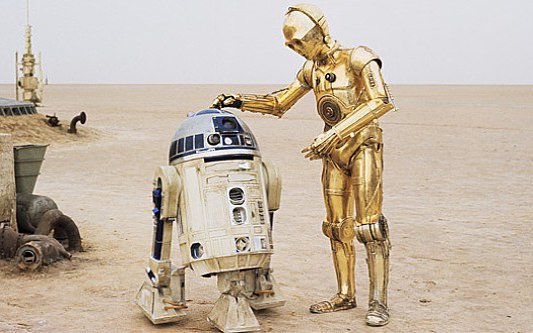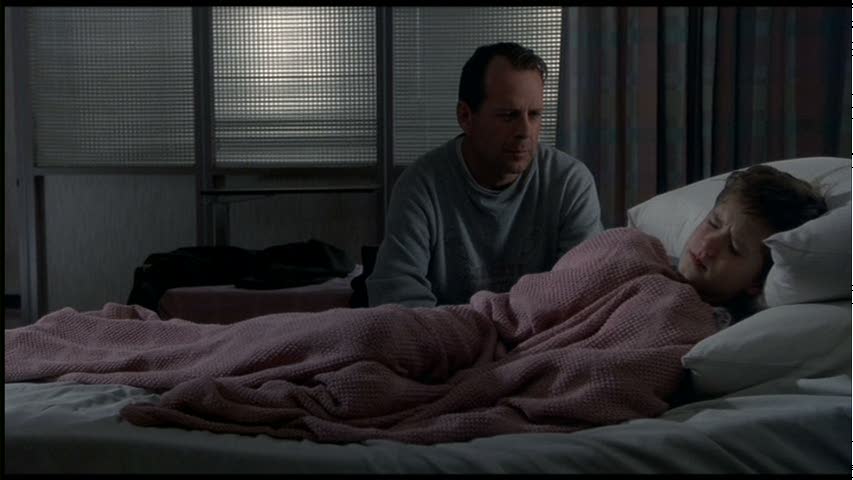Can we also just address the fact that these movies might have the catchiest theme song ever? Because it is true. After hearing that song, it was stuck in my head for days.
One thing that I found surprising about the films is that even though they were done a long time ago, and it doesn't always look real (the costumes and the graphics were not as advanced as they are now), it felt real. There was never a point in the movie when I was like, "ugh cheesy, that is so fake." It felt legit, and I felt like I knew the characters. When watching these movies, I sometimes thought that this really could be in a galaxy far, far, away.
The characters themselves had a lot of depth- even R2D2 who only spoke in beeps, boops, and bops. I was sad when he was eaten in the degoba system (thank god he was spit back out!). C3PO was annoying, but at the same time, I didn't like seeing him get blown up.

Did you know that there were people in both R2D2 and C3PO?

Chubakka was a personal favorite. I never understood what he was saying but he just always said the right thing in my mind. At the end of the first movie, when Luke is trying to destroy the death star, I found myself cheering when Han Solo came back. When Lando tricks Solo, Leia, and Chubakka and turns them over to Darth Vader, I loved it when Luke came in to save them. The relationships between these characters are so strong and apparent throughout the entire movie, you just have to root for them. And finally, Yoda. Not at all what I was expecting was he. When I heard of Yoda, I thought he was just a small old Jedi master- I had no idea he could be so absurd and funny! When Luke first met Yoda in the Degoba system, I thought it was the funniest thing. Yoda was just so weird! I loved it.
Overall, the characters along with the creative story and surprisingly good cinematography made these movies a complete joy to watch. Some of the movies in this project I found myself glancing at the clock, wondering how much time was left. But for these, I just couldn't wait to put the next disc in.


















